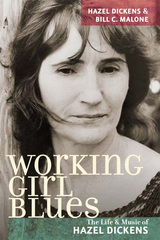2 books about 1925-2011

If It Takes All Summer
Martin Luther King, the KKK, and States' Rights in St. Augustine, 1964
Dan R. Warren, with foreword by Morris Dees
University of Alabama Press, 2008
This memoir recounts the struggle against segregation in St. Augustine, Florida, in the early and mid-1960s. In the summer of 1964 the nation’s oldest city became the center of the civil rights movement as Martin Luther King Jr., encouraged by President Johnson, a southerner, who made the civil rights bill the center piece of his domestic policy, chose this tourism-driven community as an ideal location to demonstrate the injustice of discrimination and the complicity of southern leaders in its enforcement.
St. Augustine was planning an elaborate celebration of its founding, and expected generous federal and state support. But when the kick-off dinner was announced only whites were invited, and local black leaders protested. The affair alerted the national civil rights leadership to the St. Augustine situation as well as fueling local black resentment.
Ferment in the city grew, convincing King to bring his influence to the leadership of the local struggle. As King and his allies fought for the right to demonstrate, a locally powerful Ku Klux Klan counter-demonstrated. Conflict ensued between civil rights activists, local and from out-of-town, and segregationists, also home-grown and imported. The escalating violence of the Klan led Florida’s Governor to appoint State Attorney Dan Warren as his personal representative in St. Augustine. Warren’s crack down on the Klan and his innovative use of the Grand Jury to appoint a bi-racial committee against the intransigence of the Mayor and other officials, is a fascinating story of moral courage. This is an insider view of a sympathetic middleman in the difficult position of attempting to bring reason and dialog into a volatile situation.
[more]

Working Girl Blues
The Life and Music of Hazel Dickens
Hazel Dickens and Bill C. Malone
University of Illinois Press, 2007
Hazel Dickens was an Appalachian singer and songwriter known for her superb musicianship, feminist country songs, union anthems, and blue-collar laments. Growing up in a West Virginia coal mining community, she drew on the mountain music and repertoire of her family and neighbors when establishing her own vibrant and powerful vocal style that is a trademark in old-time, bluegrass, and traditional country circles. Working Girl Blues presents forty original songs that Hazel Dickens wrote about coal mining, labor issues, personal relationships, and her life and family in Appalachia. Conveying sensitivity, determination, and feistiness, Dickens comments on each song, explaining how she came to write them and what they meant and continue to mean to her. Bill C. Malone's introduction traces Dickens's life, musical career, and development as a songwriter, In addition, Working Girl Blues features forty-one illustrations and a detailed discography of Dickens's commercial recordings.
[more]
READERS
Browse our collection.
PUBLISHERS
See BiblioVault's publisher services.
STUDENT SERVICES
Files for college accessibility offices.
UChicago Accessibility Resources
home | accessibility | search | about | contact us
BiblioVault ® 2001 - 2024
The University of Chicago Press









